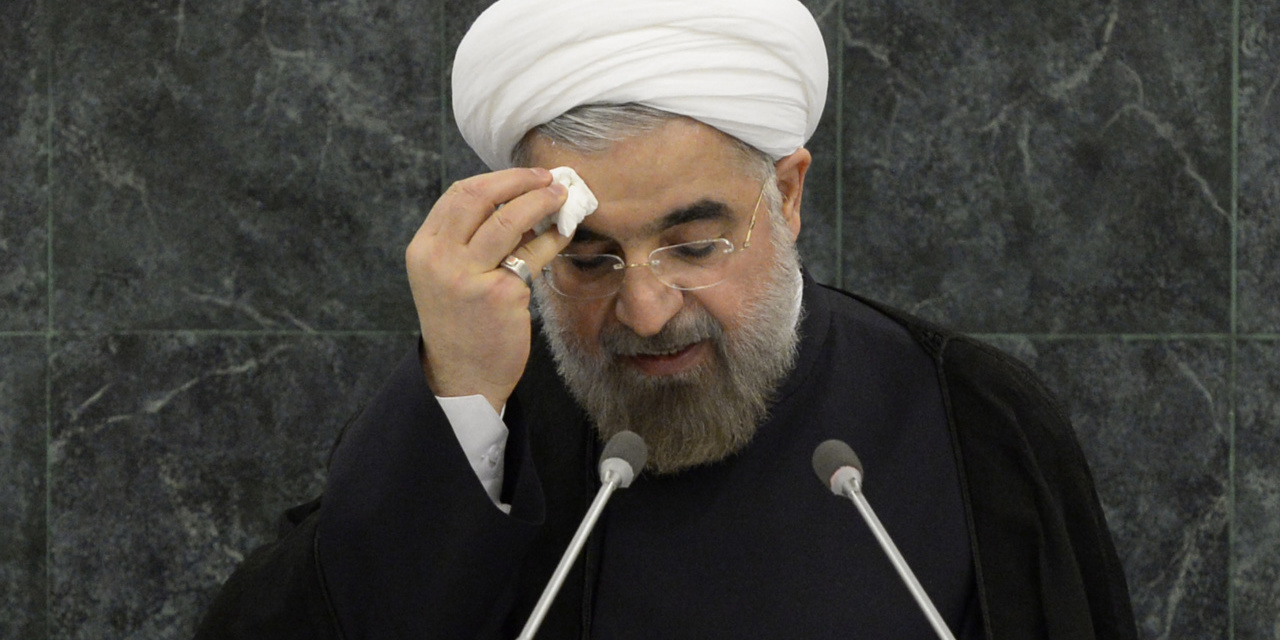Iranian President Hassan Rouhani addresses the UN General Assembly, New York, September 24, 2013 (Brendan McDermid/Reuters)
Iran’s President Hassan Rouhani has told officials that pressure from US sanctions is greater than the challenge faced by Tehran in its 1980s war with Iraq.
Rouhani explained in a Saturday meeting:
Today, it cannot be said that the conditions are better or worse than the Imposed War, but during the war we did not have problems with banking, oil sales and imports and exports, and our only sanction was boycott of arms purchases.
He acknowledged that, amid comprehensive US sanctions from November and Washington’s recent escalation, “These problems have impacted the areas of oil, petrochemical, steel and agriculture.”
Hundreds of thousands of Iranians were killed in the 1980-1988 war, and the estimated cost was more than $600 billion. But Rouhani indicated that today’s situation could be more precarious because of the challenge to Iranian unity.
“During the Imposed [Iran-Iraq] War, almost all people agreed that the government was not to blame for problems, but Saddam had begun the invasion and warfare, and because people were unanimous in this regard, the conditions were not ideal but fairly good and people helped solve problems. Today, we must hold the same consensus and create empathy and consensus, and do not give up.”
Iran’s oil exports have fallen almost 60%, from 2.5 million barrels per day to 1.1 million, since Donald Trump withdrew the US last May from the 2015 nuclear deal. An Iranian official has said that only $10 billion of Tehran’s $30 billion annual non-oil trade can be processed because of financial restrictions.
Lack of Authority?When the government is asked questions, it would be necessary to examine how much the government has had authority in those areas under question. For example, if questions regarding foreign policy, culture or cyberspace are raised, we have to see how much authority the government has in these areas.
With long-term internal issues combining with the sanctions, Iran is facing difficulties with production, investment, employment, and a historically-weak currency.
The President offered no specific answers on Saturday, saying only, “It’s important to make decisions for the people to be happy and feel that an important step has been taken at the meeting.”

